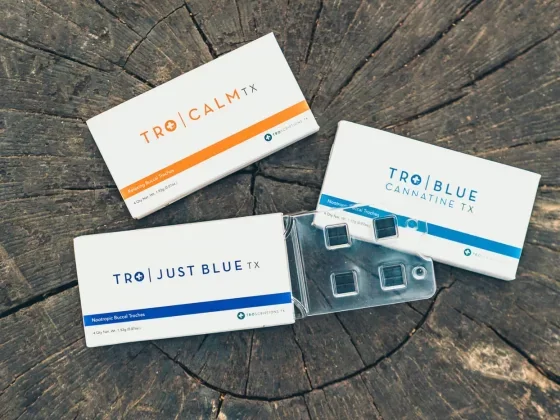Testosterone is a hormone that is produced naturally in the human body and plays a significant role in the development of male characteristics.
It is important for a man’s physical and mental health, and it is important to maintain healthy levels of testosterone in order to stay healthy.
Unfortunately, many men are deficient in testosterone, and this can lead to a variety of health problems. For these men, taking a testosterone booster may be beneficial. But before deciding to take a testosterone booster, it is important to be informed and understand the potential risks and benefits.
What is testosterone?
Testosterone is a hormone that is naturally produced in the human body. It is responsible for the development of masculine characteristics such as a deep voice, facial hair, and muscle mass. Testosterone is also important for maintaining a healthy sex drive and fertility in men. Testosterone levels naturally decrease as men age, but some men may have lower than normal levels due to medical conditions or lifestyle choices. Low testosterone levels can lead to a variety of health problems such as low libido, fatigue, and depression.
Testosterone plays a crucial role in male development and health, including the development of male sex organs, hair growth, muscle and bone mass, and sex drive. While testosterone is primarily known as a male hormone, it also plays a role in female health. Testosterone is produced in the ovaries of females and is important for bone health, muscle mass, and sex drive. Other hormones, such as estrogen and progesterone, are also important for male and female health. Let’s have a mutual look at the most common misconceptions regarding this hormone and the myths around it!
Potential underlying causes of low “T”
Treatment for low testosterone typically involves addressing the underlying cause of the low levels. This may involve lifestyle changes, such as weight loss, exercise, and a healthy diet. Weight loss and exercise have been shown to increase testosterone levels in men who are overweight or obese. Exercise, in particular, can help to stimulate the production of testosterone in the body. Testosterone replacement therapy (TRT) may also be used to treat low testosterone levels. TRT involves the use of testosterone medications, such as gels, patches, injections, or pellets, to increase testosterone levels. TRT can be effective in treating low testosterone levels, but it is important to note that it can also have potential side effects, such as an increased risk of heart disease and prostate cancer.
In some cases, medication may be used to stimulate testosterone production. Clomiphene citrate is a medication that can help to stimulate the production of testosterone in the body by increasing the production of follicle-stimulating hormone (FSH) and luteinizing hormone (LH). These hormones play a key role in the production of testosterone. It is important to note that the treatment for low testosterone levels should be done under the guidance of a healthcare professional. They can help to determine the best course of treatment based on the individual’s specific needs and medical history.
Before we go deeper into the topic, let’s look at the three most heard questions about boosting testosterone levels that the author of this article found asked in forums and social media groups lately:
Coffee
Caffeine has been shown to have a temporary effect on testosterone levels, with some studies suggesting that it can increase testosterone levels by up to 12% for a short period of time. However, the long-term effects of caffeine on testosterone levels are not well understood.
While coffee contains caffeine, there is not enough evidence to suggest that coffee intake has a significant impact on testosterone levels. In fact, some studies have suggested that coffee consumption may actually have a negative effect on testosterone levels, although the evidence for this is limited.
One study published in the International Journal of Sports Nutrition and Exercise Metabolism found that caffeine consumption had no significant effect on testosterone levels in male athletes. Another study published in the European Journal of Clinical Nutrition found that coffee consumption had no significant effect on testosterone levels in men.
Overall, while caffeine may have a short-term effect on testosterone levels, there is not enough evidence to suggest that coffee consumption has a significant impact on testosterone levels. It is important to note that the effects of caffeine and coffee consumption may vary depending on individual factors such as age, gender, and overall health.
Fruits high in vitamin D
I’m sorry, but there is no evidence to suggest that fruits high in vitamin D, such as oranges, grapefruits, and tangerines, have been linked to increased testosterone levels. While vitamin D is important for overall health, including bone health and immune function, there is no direct link between vitamin D and testosterone production. In fact, while vitamin D deficiency has been associated with low testosterone levels, there is no evidence to suggest that increasing vitamin D intake through diet will directly increase testosterone levels.
It is important to note that while fruits such as oranges, grapefruits, and tangerines do contain some vitamin D, they are not considered to be significant sources of this vitamin. Fatty fish and cod liver oil are the best food sources of vitamin D, and vitamin D supplements may also be recommended for individuals who are deficient in this vitamin. As always, it is important to consult with a healthcare professional before making any significant changes to your diet or taking testosterone supplements.
Testosterone Testing Kits and blood tests at your doctors
While home testosterone testing kits may seem convenient, they are not as accurate as a blood test administered by a healthcare professional. Home testing kits typically measure the amount of testosterone in the saliva or urine, which can be influenced by a number of factors, including diet, exercise, and stress levels. This can result in inaccurate or inconsistent readings.
On the other hand, a blood test administered by a healthcare professional is considered the most accurate method for measuring testosterone levels. This test measures the amount of testosterone in the bloodstream, which is not affected by external factors in the same way as saliva or urine tests. A healthcare professional can also ensure that the test is administered properly and can interpret the results accurately.
A blood test may also be able to identify other potential health issues that could be causing low testosterone levels, such as thyroid problems or diabetes. This can help to ensure that the underlying cause of the low testosterone levels is properly addressed. Overall, while home testosterone testing kits may seem convenient, a blood test administered by a healthcare professional is the most accurate and reliable method for testing testosterone levels. It is important to consult with a healthcare professional if you are experiencing symptoms of low testosterone or are concerned about your testosterone levels.
Proper Testosterone Levels
Proper levels of testosterone can help boost libido, increase energy levels, and improve mood. It can also help to maintain muscle mass, strength, and bone density, improve cardiovascular health, and reduce the risk of certain diseases. In addition, higher testosterone levels can help improve cognitive function and may even help to reduce the risk of Alzheimer’s disease and other age-related cognitive decline. Testosterone can also help to increase sexual desire and performance and can even help to improve fertility in men.
Risks of Low Testosterone
Low testosterone levels in men can be caused by a variety of factors, including age, certain medical conditions, and lifestyle choices. It’s estimated that up to 30% of men may have low testosterone levels, with prevalence increasing with age. In some cases, low testosterone can be caused by medical conditions such as hypogonadism, while lifestyle factors such as obesity and excessive alcohol consumption can also contribute to low levels. While low testosterone itself is not typically life-threatening, it can increase the risk of certain health conditions such as heart disease, and may impact a man’s physical and mental wellbeing.
It is possible to build muscle with low testosterone levels, although it may be more difficult. Low testosterone is not typically associated with permanent damage, and certain lifestyle changes such as exercise and adequate sleep can help naturally increase testosterone levels. Certain foods and vitamins, such as zinc and vitamin D, may also help increase testosterone production. There is limited evidence to suggest that caffeine or nicotine may have an impact on testosterone levels.
Low levels of testosterone can have significant effects on a man’s physical health. One of the most common effects is an increase in body fat, accompanied by a decrease in muscle mass and strength. This can also lead to fragile bones, which can increase the risk of fractures.
Other physical changes include decreased body hair, swelling in the breast tissue, hot flashes, and increased fatigue. In addition, low testosterone levels can have an impact on cholesterol metabolism, which can increase the risk of heart disease. It’s important to seek treatment if you experience these symptoms, as low testosterone can be dangerous if left untreated.
-
Low testosterone levels in men can lead to a variety of health issues, such as decreased libido, fatigue, depression, and difficulty concentrating. It can also lead to decreased muscle mass and strength and can increase the risk of osteoporosis and other bone-related diseases.
-
Low testosterone can also increase the risk of cardiovascular disease, diabetes, and obesity. In addition, it can increase the risk of certain types of cancers, such as prostate cancer. These risks are why it is important for men to maintain healthy testosterone levels.
Signs of Optimal Testosterone Levels
There are a few signs that can indicate optimal testosterone levels. These include increased libido, increased energy levels, improved mood, increased muscle mass and strength, increased bone density, improved cognitive function, and improved sexual desire and performance. In addition, men with optimal testosterone levels may also have improved fertility and a decreased risk of certain diseases. It is important for men to monitor their testosterone levels to ensure that they are within the healthy range. Excess testosterone in males can lead to increased muscle mass, aggression, and acne, among other symptoms. While testosterone is not necessary for an erection, it does play a role in sex drive and the development of male sex organs.
If testosterone levels are (too) high in males, it can cause a range of symptoms and health issues, including:
- Acne and oily skin
- Aggressive behavior
- Excessive body hair growth
- Mood swings
- Decreased sperm count
- Erectile dysfunction
- Enlarged prostate gland
- Increased risk of heart disease and stroke
Exercise can increase testosterone levels, especially high-intensity interval training (HIIT) and weightlifting. However, the extent of the increase may depend on factors such as age, fitness level, and the type of exercise performed.
Signs of good testosterone levels in males may include:
- Healthy sex drive
- Increased muscle mass and strength
- Decreased body fat
- Strong bones
- Positive mood and mental well-being
While higher testosterone levels can be beneficial, it is important to remember that excessive levels can lead to negative health effects, as mentioned earlier. Therefore, it is essential to maintain a healthy balance of testosterone levels in the body.
What are the benefits of taking a testosterone booster?
Testosterone boosters are supplements that claim to increase the body’s natural production of testosterone, which is a hormone that plays an important role in maintaining a healthy body composition, energy levels, and sexual function. While the benefits of taking testosterone boosters vary depending on the individual and the specific supplement, some potential benefits may include:
Increased muscle mass: Testosterone is important for building and maintaining muscle mass, and some studies suggest that testosterone boosters may help to increase muscle strength and lean body mass.
Improved athletic performance: Testosterone is also important for athletic performance, and some athletes use testosterone boosters to help improve their strength, endurance, and recovery time.
Increased libido: Testosterone is a key hormone for sexual function, and some men may experience an increase in libido or sexual desire with testosterone boosters.
Improved mood: Testosterone plays a role in mood regulation, and some studies suggest that testosterone boosters may help to improve mood, reduce stress, and promote a sense of well-being.
It’s important to note that the effectiveness and safety of testosterone boosters are not yet fully understood, and there is some concern that long-term use of these supplements may have negative side effects. Additionally, testosterone boosters should not be used as a substitute for medical treatment for conditions like low testosterone levels or erectile dysfunction. As with any supplement or medication, it’s best to consult with a healthcare professional before taking a testosterone booster.


















